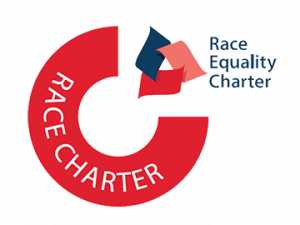Race Equality Charter
About Race Equality at Lincoln
In 2016 we, as the University of Lincoln, started our journey to race equality. The journey that meant to be challenging but also empowering and rewarding. Race inequalities exist and we have accepted this as a matter of fact, however we have also realised that our actions to create inclusive culture cannot be manifested in quick solutions aimed at tackling individual incidents. In order to make a real and meaningful change we need a significant cultural shift, we need our staff and students to work with us and help us create an environment where everyone is able to thrive irrespective of their race or ethnicity or any other difference that makes each person special.
Race Equality Charter Mark
 Race Equality Charter Mark aims to improve the representation, progression and success of minority ethnic staff and students within higher education.
Race Equality Charter Mark aims to improve the representation, progression and success of minority ethnic staff and students within higher education.
Race Equality Charter, developed and overseen by AdvanceHE (previously Equality Challenge Unit), provides a framework that enables institutions to identify through a self-reflection process, institutional and cultural barriers to development, achievement and progression of minority ethnic staff and students.
As the institution we became a member of the Race Equality Charter in 2016 and since then our strategic approach has been underpinned by five guiding principles:
- Racial inequalities are a significant issue within higher education. Racial inequalities are not necessarily overt, isolated incidents. Racism is an everyday facet of UK society and racial inequalities manifest themselves in everyday situations, processes and behaviours.
- UK higher education cannot reach its full potential unless it can benefit from the talents of the whole population and until individuals from all ethnic backgrounds can benefit equally from the opportunities it affords.
- In developing solutions to racial inequalities, it is important that they are aimed at achieving long-term institutional culture change, avoiding a deficit model where solutions are aimed at changing the individual.
- Black and minority ethnic staff and students are not a homogenous group. People from different ethnic backgrounds have different experiences of and outcomes from/within higher education, and that complexity needs to be considered in analysing data and developing actions.
- All individuals have multiple identities and the intersection of those identities should be considered wherever possible.
Contact
If you would like to discuss anything with regards to race equality at Lincoln or receive further information, please contact EDI Team by phone on 01522 886722 or email at egi@lincoln.ac.uk.
